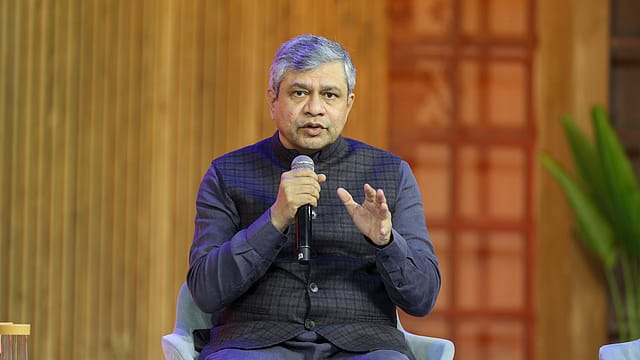‘Great success’: 38 companies apply under PLI IT hardware scheme
ADVERTISEMENT

Union minister for electronics & information technology Ashwini Vaishnaw has said many companies, including big names like Foxconn, HP, Acer, Dell and Lenovo, Flextronics, Dixon, Acer, Thompson, VVDN, and Asus, have applied for manufacturing laptops, PCs and servers in India under the Production Linked Incentive (PLI) 2.0 Scheme for IT hardware. The US-based smartphone giant Apple, however, has given a miss to the Centre’s incentive plan.
The PLI scheme 2.0 for IT hardware covers laptops, tablets, all-in-one PCs, servers, and ultra-small form factor devices.
"Prime Minister's vision of Aatmanirbhar Bharat and Make in India has created such a strong attraction for the entire world that the global manufacturing companies are coming to India...32 companies have applied for manufacturing in India under the PLI scheme," Vaishnav says.
However, by 10.30 PM on August 30, the last day for applying under the scheme, the number of applications had climbed to 38.
The scheme, says the minister, is going to make a huge difference just like mobile phone manufacturing increased multi-fold after the PLI, and India became a big manufacturer and exporter of mobile phones. In the same way, India will become a big manufacturer and exporter of PCs, laptops, and servers, the minister adds.
This scheme, he says, will create ₹3.35 lakh crore worth of additional production, adding that it'll have an investment of ₹2,430 crore and create direct employment of 75,000 in the period of six years. "As we know for every direct employment, there is multiple of two or three indirect employment. So this is a great success, and an overwhelming response has been received."
The PLI scheme closed on August 30, 2023, and the companies are enthusiastic about starting production in India. "There will be a lot of value addition, which will be between 30 and 48%, and once the semiconductor manufacturing also starts, it'll go up to 75%."
The incentive per company will be applicable on net incremental sales of manufactured goods (covered under the target segment) over the base year, subject to a ceiling of ₹4,500 crore for global companies, ₹2,250 crore for hybrid (global/domestic) companies and ₹500 crore for domestic companies.
The scheme is expected to contribute significantly to achieving electronics manufacturing turnover of approximately $300 billion by 2025-26. Prime Minister Narendra Modi-led Union Cabinet approved the second PLI scheme for IT hardware, with a budgetary outlay of ₹17,000 crore, in May this year.
The announcement was significant as it came after India became the world's second-largest manufacturer of mobile phones. Exports of mobile phones crossed a major milestone of $11 billion this year (₹90,000 crore).
According to India Ratings and Research (Ind-Ra), FDI in computer hardware and software increased to $72.7 billion from April 2014 to March 2022 from just $12.8 billion from April 2000 to March 2014. The domestic production of electronic goods has increased substantially from ₹3,17,331 crore in 2016-17 to ₹6,40,810 crore in 2021-22, growing at a compound annual growth rate (CAGR) of 15%.
India’s share in global electronics manufacturing has grown from 1.2% in 2014 to 3.75% in FY 2021-22, as per industry estimates.